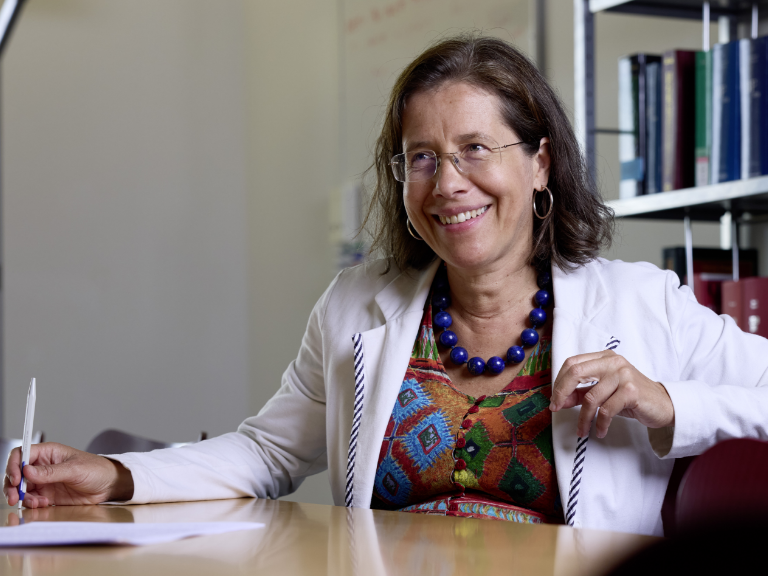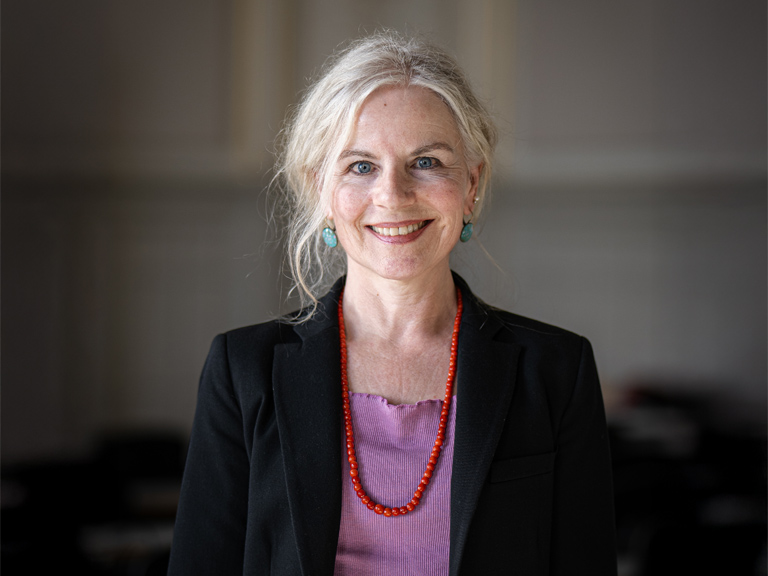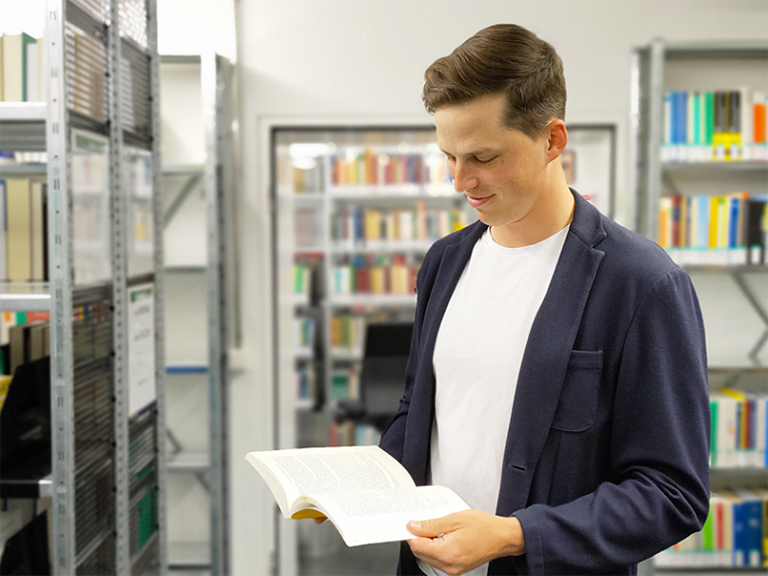Law
Human Rights Law Clinic: Putting human rights into practice
The Human Rights Law Clinic of the University of Bern was the first Swiss law clinic to work exclusively with real cases. We visited them – and learned what sets their curriculum apart and what inspires their students.
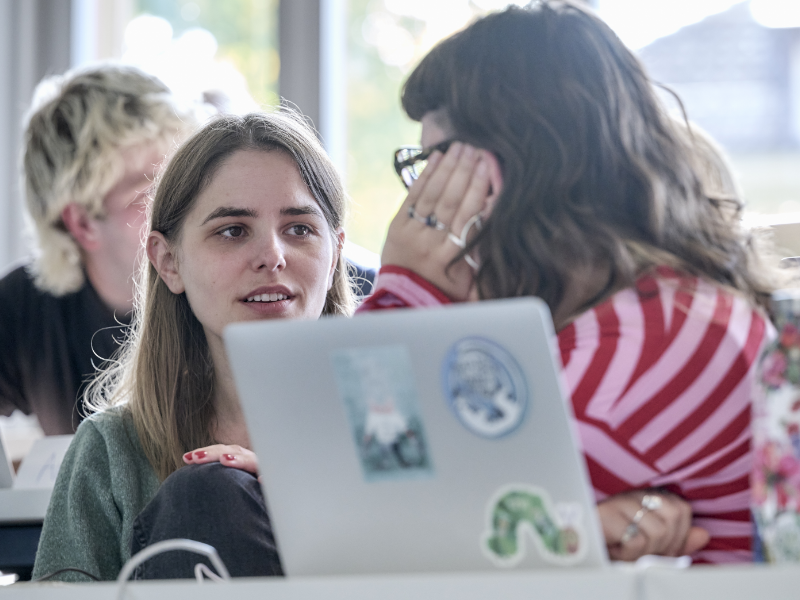
This October afternoon, at Mittelstrasse 43 – in an institute building at the University of Bern – professors, representatives of the Mittelbau (a collective of the faculty’s teaching staff) and around 20 students will meet for the first case reviews of the Human Rights Law Clinic (HRLC) in the new semester. This form of teaching offers law students the opportunity to work on real cases and questions during their studies – both acquiring legal knowledge in writing legal texts and also working on improving their performance and communication skills.
Alberto Achermann, Associate Professor of Migration Law and one of three co-directors of the Legal Clinic, welcomes the participants. He makes reference to an upcoming visit to the European Parliament, the Council of Europe and the European Court of Human Rights and outlines what participants can expect this afternoon at the Law Clinic: “You’ll present your proposed solutions to real cases. The subsequent discussion of open questions in the plenary session will serve to sharpen the legal arguments.”
Case Number 82
The atmosphere in the seminar room is tense and focused – not least because three students are about to present the first case. It is the 82nd case handled by the Human Rights Law Clinic, which was founded in 2017. As the case has not yet been finally resolved, no details may be disclosed – except that it is a case of “reverse family reunification.”This refers to a special case in which a parent is granted the right of residence in Switzerland in order to care for their children.
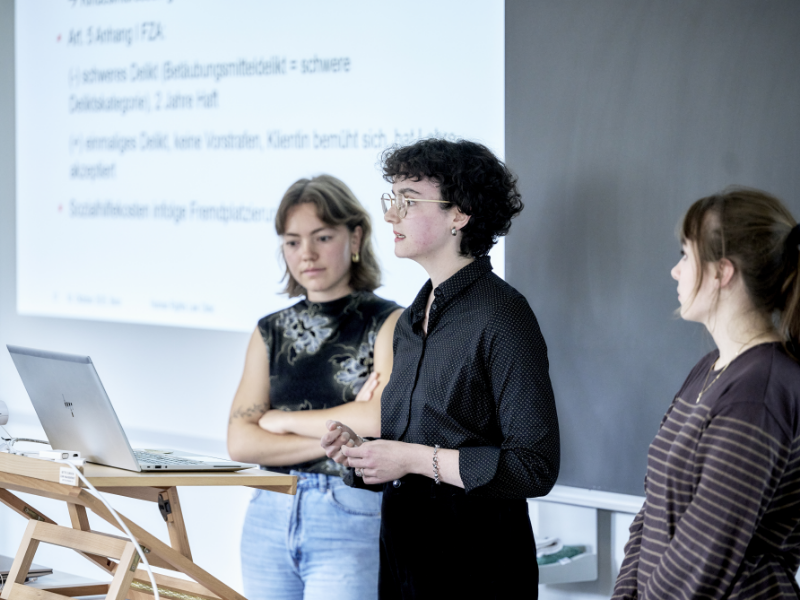
The students first explain the applications submitted by the Law Clinic, which, however, were ultimately – for the time being – unsuccessful. After about 30 minutes, they open the discussion. They want the plenum to evaluate their opinion on the negative decision by the Migration Office.
“The discussion of the open questions in the plenary session of the Law Clinic serves to sharpen the legal arguments”
- Alberto Achermann
After a short, focused and measured debate, Alberto Achermann concludes that this is “an extreme case.”He thanks the presenters and dismisses the group for a break. The case presented after the break is not only closed, but also a success story for the Law Clinic: In this case, a complaint lodged by the lawyer – with the assistance of the Law Clinic – resulted in the client being released on parole after serving half, instead of two-thirds, of his sentence.
A resounding success
Andri Hummel, law student in the fifth semester of his master’s degree, summarizes the legal facts and tells the group that the client will visit the HRLC in November this year. Coordinator Jann Schaub emphasizes how quickly the case was resolved: “We got involved in February 2025, the verdict was pronounced in June, and by August our client was out of prison.” He has since been reintegrated into society. He has his own home and a job.
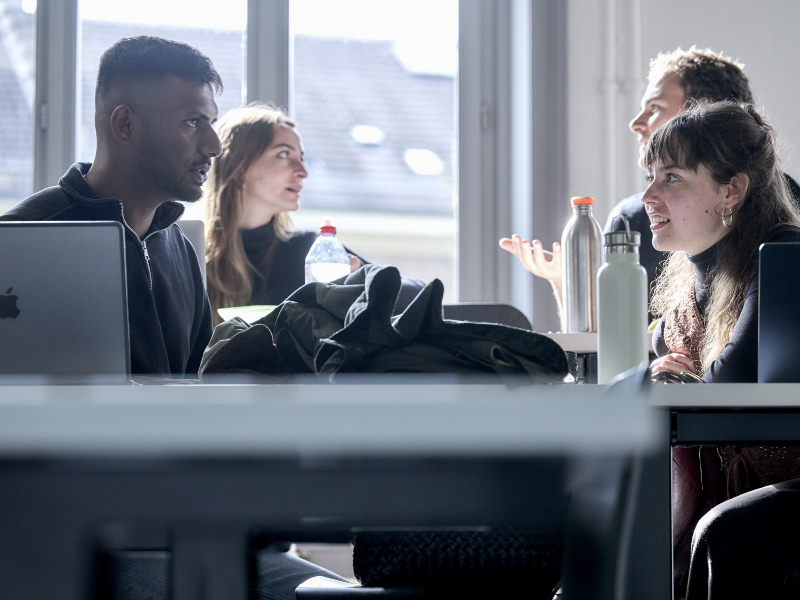
Addressing the four participating students, Jonas Weber, Professor of Criminal Law and Criminology and Co-Director of HRLC, says: “The case is a resounding success for you. It is also striking how strongly the Court followed your arguments.”
Then it’s 4 p.m. and the event is over – a good opportunity to talk to coordinator Jann Schaub and learn more about the Human Rights Law Clinic. “It all started out as a pilot project with eight participants,” says the lecturer. What distinguishes the HRLC from similar institutions is that it has worked exclusively with real cases since its inception. “Our course is offered in collaboration with two departments – public law and criminal law,” he explains.
“It is important to us that the participants of the Law Clinic are passionate about the issues we advocate for.”
- Jann Schaub
Commitment to human rights
When asked what prerequisites students need to meet in order to participate in the course, Schaub explains, “above all, it is important to us that the students are passionate and committed – especially in relation to human rights and the issues we advocate for. Participants should also be aware that they will be confronted with difficult situations.” For Schaub, it is essential that the Law Clinic is well rooted in the region – even if the cases presented on this day were held elsewhere. “There are many NGOs in Bern, including some that operate throughout Switzerland. In addition, many lawyers from Bern work with us and regularly suggest that we participate in cases.” As a result, the legal clinic now has a very broad network.
Educational value as a prerequisite
According to Schaub, two criteria in particular determine whether a case will be taken on by the HRLC: “The case must have an educational value. That is why, for example, we do not take on any completely hopeless cases.” As a general rule, cases that do not raise any interesting legal questions are not considered either. “It is important for us to work together with the students on a case and develop a result that can be submitted as a legal brief.” Of course, the Law Clinic only considers issues in which it has a level of expertise, “this applies in particular to general human rights, migration law and penal law.”
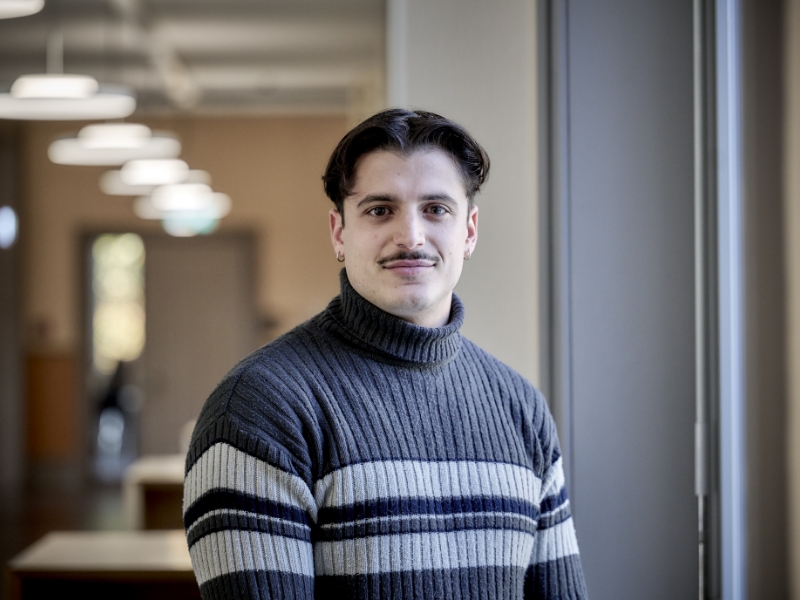
It’s high time to ask the participants of the Law Clinic for their opinions – after all, they’ll be practicing law in the future. Luisa Segessenmann is in the 3rd semester of her master’s degree; Gazmendi Noli in the 5th. Luisa has always been interested in human rights and wanted to finally gain some practical experience during her “rather theory-heavy law studies.”This motivated the Bern-born woman to enroll in the Legal Clinic. Gazmendi, also a law student, explains that the HRLC allows him to actively support people who would otherwise have difficulty accessing legal services.
“I have learned to deal with emotionally difficult situations and to see them as motivation for dedicated case work, rather than as a burden.”
- Gazmendi Noli
Asked about their experiences at the Law Clinic and what the two of them have learned, Gazmendi explains: “Professionally, I have learned to analyze situations that are complex from a human perspective from a legal perspective and to translate them into precise legal briefs. Personally, I have learned to deal with emotionally difficult situations and to use how they affect me as motivation, rather than as a burden.” Luisa adds: “I was thrown into the deep end at the Law Clinic. Since then, I've learned how to research a legal issue, gather an overview of the situation and work as a team to achieve what we set out to do.”
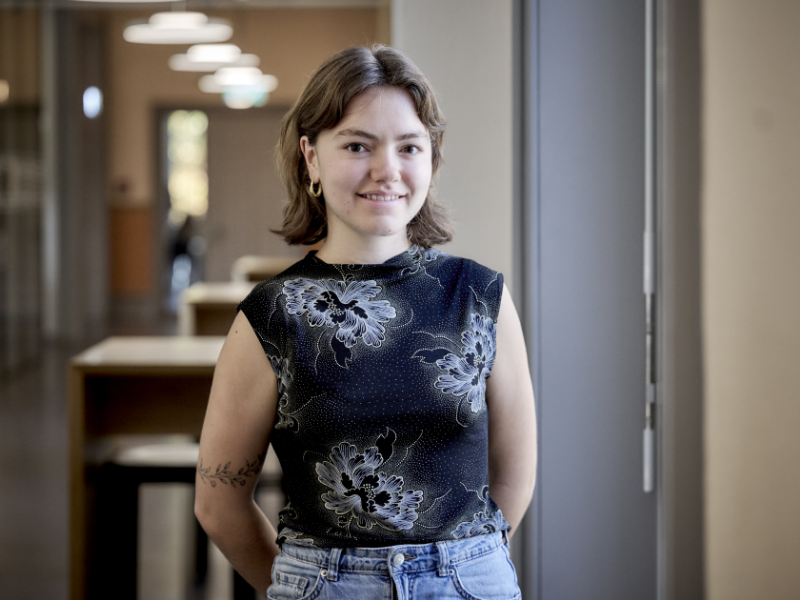
Both admit that they sometimes reach their limits when working at the legal clinic. Luisa emphasizes that “dealing with injustices involves enduring a certain sense of powerlessness, staying positive, and recognizing that our work also creates small but important impact.” Gazmendi adds: “despite the sometimes overwhelming situation, there is almost always a good way forwards.” This is mainly due to the close support, the step-by-step analysis and the discussion within the group.
Given their statements, it is not surprising that both can well imagine working in the field of human rights later. This leads Gazmendi to conclude that “my experience of the Law Clinic has strengthened my desire to pursue a career in which I can defend the rights of others. That is also my main motivation for studying law.”
About the person
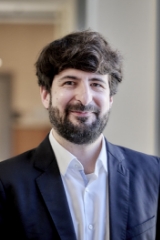
Jann Schaub
studied law in Fribourg and obtained his doctorate at the University of Bern in 2013. Today, he works in the field of criminal law and criminology. As coordinator of the Human Rights Law Clinic at the University of Bern, he plays a key role in its organization. The lawyer and lecturer in criminal law contributes particularly to providing students with practical insights into legal issues in the field of human rights.
The Human Rights Law Clinic (HRLC)
The Human Rights Law Clinic is an innovative form of teaching that has been offering aspiring lawyers the opportunity to work on real cases during their studies since 2017. It is a project of the Departments of Public Law and Criminal Law of the Faculty of Law at the University of Bern. It works on a case-by-case basis with lawyers, legal advice centers and NGOs with the aim of promoting exchange between academia and practice. It focuses on human rights issues.
Subscribe to the uniAKTUELL newsletter

Discover stories about the research at the University of Bern and the people behind it.
